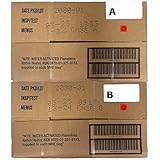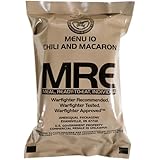Self-reliant living is a journey that many of us feel called to embark upon, but figuring out where to turn for guidance can be a bit overwhelming. From gardening to food preservation, there’s a wealth of knowledge out there, and it’s essential to connect with the right people who can help light the way. In this guide, I’ll break down some ideal groups or individuals to approach when looking for self-reliant living advice.
Local Community Groups
Identifying Local Resources
When I first started exploring the self-reliant lifestyle, I wasn’t sure where to look. My first step was to check out local community centers or libraries. They often have notice boards filled with information about workshops, classes, or groups focused on skills like gardening, canning, or even DIY projects.
Additionally, social media groups and platforms like Facebook provide a way to connect with local individuals who share similar interests. Just joining a few local group chat options made such a difference in my journey, as I was able to interact with others and share my experiences, giving me a real sense of community.
Don’t hesitate to dive into local farmer’s markets or fairs. Not only can you meet people who are already living a self-reliant life, but you also build a network of contacts who can offer invaluable advice specific to your area.
Connecting with Experienced Locals
One of the best resources you can tap into is the wisdom of those who have been practicing self-reliance for years. I started simply by asking around. Locating seasoned gardeners or homesteaders in my neighborhood opened up a treasure trove of tips and stories that textbooks couldn’t provide.
Usually, these experienced folks are thrilled to share their knowledge—everything from the right types of crops for your climate to the best techniques for natural pest control. It’s like having your very own mentor right in your backyard!
Don’t underestimate the power of listening to their stories. Every failure and success they share can give you incredible insights into what works and what doesn’t when living autonomously.
Participating in Community Workshops
Workshops are gold mines of information. I can honestly say that attending a few local workshops changed my approach to self-reliance forever. Not only did I learn how to preserve food, but I also discovered the art of herbal medicine and essential oil extraction, which are total game-changers!
== > What if ... Get a FREE Subscription to PREPARE
These classes usually attract a diverse group of participants, and each person can bring something unique to the table. Whether you’re learning a new skill or just sharing experiences, there’s a wonderful feeling of camaraderie that comes from learning together.
Plus, many of these workshops are led by passionate individuals who genuinely want to nurture self-reliance in the community, and their enthusiasm is contagious!
Online Resources and Forums
Utilizing Websites and Blogs
Let’s be real: the internet is brimming with information. When I first started my self-reliant journey, I scoured websites and blogs dedicated to homesteading and sustainability. There are countless individuals eager to share their insights and hacks, covering everything from permaculture principles to building your own chicken coop.
One of my favorite aspects of following these online personalities is that they often include personal anecdotes that make their advice feel approachable. It’s not just theory; it’s real-life application, which I found incredibly helpful.
Becoming part of this digital world makes you feel less isolated as you connect with others committed to self-reliance and share tips or experiences through the comment sections or discussion forums.
Engaging in Online Communities
I found that online forums are invaluable for exchanging ideas. Platforms like Reddit have dedicated communities where you can ask questions, share your projects, and even get feedback on your gardening success or disaster. Some threads have helped me troubleshoot issues I encountered while trying to grow vegetables!
These communities are typically very supportive, and you’d be surprised at how many people are eager to help. Sometimes just a little encouragement from fellow enthusiasts can keep you motivated during challenging times.
Even beyond technical advice, feeling part of a larger community boosts morale. We’re all in this together, and there’s an exciting energy that radiates from collective learning and sharing.
Instructional Videos and Podcasts
As someone who prefers a more visually engaging way to learn, I truly appreciate the wealth of resources out there in video and podcast formats. There are incredible YouTube channels focused on everything from gardening techniques to homesteading basics. Watching someone demonstrate a skill can often clarify things in ways that reading simply cannot.
Many podcasters out there also dive deep into self-reliance topics, featuring interviews with experts and enthusiasts alike. I often listen to episodes while I’m cooking or gardening, and they never fail to inspire me and provide new ideas to explore.
These formats can feel more intimate than written content, connecting you to passionate individuals who are excited to share their knowledge. When I find a podcast that resonates, I not only get to learn but I also feel like I’m joining a friendly conversation.
Workshops and Classes
Hands-on Learning Experiences
When it comes to truly grasping the skills necessary for self-reliant living, there’s just nothing like getting your hands dirty. Workshops and classes are often interactive, which provides a unique opportunity to practice what you learn while under the guidance of knowledgeable instructors.
Whether it’s a one-day class on preserving food or an intensive course on organic gardening, every experience adds new tools to your self-reliance toolkit. I attended a beekeeping workshop, and wow, it was life-changing! I learned how to properly care for bees and even brought home my first hive.
Plus, you might make great friends along the way! Sharing the learning experience with others who are equally motivated can lead to lasting connections and new opportunities.
Get Preparedness and Self-Reliance Tips. Subscribe Now!
Exploring Local Educational Institutions
Did you know many community colleges or adult education centers offer courses in agriculture, food preservation, or sustainability? I stumbled upon this bit of info by chance, and it’s been a game-changer. These classes often vary in skill levels, and many are taught by industry experts or experienced practitioners.
Plus, having a structured environment allows the sharing of experiences and tips, giving everyone a holistic learning approach. I took a class on fermentation and gained so much more than just techniques; I walked away with a community of fellow fermenters!
These institutions often have educational partnerships with local farms or organizations, so it’s worth checking out their events and resources.
Creating Your Own Learning Network
One of my favorite aspects about pursuing self-reliant living is sharing my knowledge and learning from others. Why not create a network of learning where a group meets regularly to share skills? I started a small group with friends where we rotate teaching each other new skills like candle-making and foraging.
This way, everyone benefits, as each person brings a different perspective and set of skills to the table. We’ve turned learning into a fun social event, usually accompanied by snacks or a potluck!
Building a learning network means you’ll always have resources at your fingertips. Plus, the friendships formed are priceless as you bond over shared interests.
Books and Written Resources
Finding the Right Books
Books can be an amazing source of knowledge when it comes to self-reliance. I started building my library by investing in a few classic titles that cover a range of topics. From gardening to building DIY projects, there really is a book out there for everyone.
It’s all about finding resources that resonate with your personal style. Are you looking for a hands-on guide or an in-depth discussion of philosophy? There’s a perfect book to suit your needs! Many authors incorporate their personal experiences, which adds a depth to the instruction that you simply can’t get from a dry textbook.
I encourage you to browse through your local bookstore or library. Don’t be shy to ask for recommendations—librarians often know the gems hidden on their shelves!
Expert Authors and Blogs
Some authors specialize in self-reliance and sustainability topics and offer a wealth of knowledge through their writings. Following them not only gives you amazing insights but also connects you with a community of readers who share your interests. One of my go-to authors often responds to readers, creating a fun dialogue in the blog comments that feels personal.
These written resources often feel more intimate than videos or podcasts. Since they are curated, you can highlight key teachings, strategies, or tips and then return to them as needed. Plus, you can carry a book around easily instead of worrying about trying to find Wi-Fi for a video!
Check out author websites—they often have free resources or community engagement through newsletters where you can receive updates about their work and events!
Documentaries and Informational Material
Documentaries offer a fascinating entry point into the world of self-reliance. When I discovered films highlighting permaculture practices and sustainable living, it completely expanded my vision of what it means to be self-reliant. You see the living examples and hear firsthand accounts from people living the lifestyle in various locations around the world.
Some of the best documentaries not only inform but also inspire action! There’s a certain power in witnessing others achieve what you aspire to do. I remember finishing one documentary and immediately feeling the urge to start my own garden.
So, don’t forget to look for documentaries or series that encompass self-sufficient living. These can often be found on streaming services, and they provide a great source of knowledge compressed into engaging formats.
Conclusion
As you navigate the self-reliant living journey, remember that learning doesn’t happen in isolation. Whether through local groups, online platforms, hands-on workshops, or written resources, the knowledge is out there waiting for you to tap into it. Building your support system and gathering information from diverse sources will only deepen the experience of self-discovery and self-sufficiency. So, go ahead—reach out, explore, and don’t forget to enjoy the ride!
FAQ
1. Why is it important to consult others for self-reliant living advice?
Consulting others can provide you with unique insights, real-life experiences, and tips that cannot be found in books or videos. It builds a sense of community and can help you avoid common pitfalls when starting your self-reliant journey.
2. How do I find local community groups related to self-reliance?
Start by checking community centers, libraries, or social media platforms for local groups. Websites like Meetup and Facebook often have various self-reliance-related gatherings and workshops listed.
3. Are online resources reliable for learning skills related to self-reliance?
Many online resources, including blogs, YouTube channels, and forums, are created by individuals who have real-world experience. However, it’s vital to cross-reference information and ensure credibility whenever possible.
4. Can I successfully learn self-reliance just through books?
Absolutely! Books can provide extensive information and offer a strong foundation. However, pairing book knowledge with hands-on experience and connecting with others makes the learning experience richer and more effective.
5. What should I do if I don’t find supportive resources in my area?
If local resources are lacking, consider turning to online communities, webinars, or virtual classes. The self-reliant community is global, and there are many online platforms where you can learn and connect.






